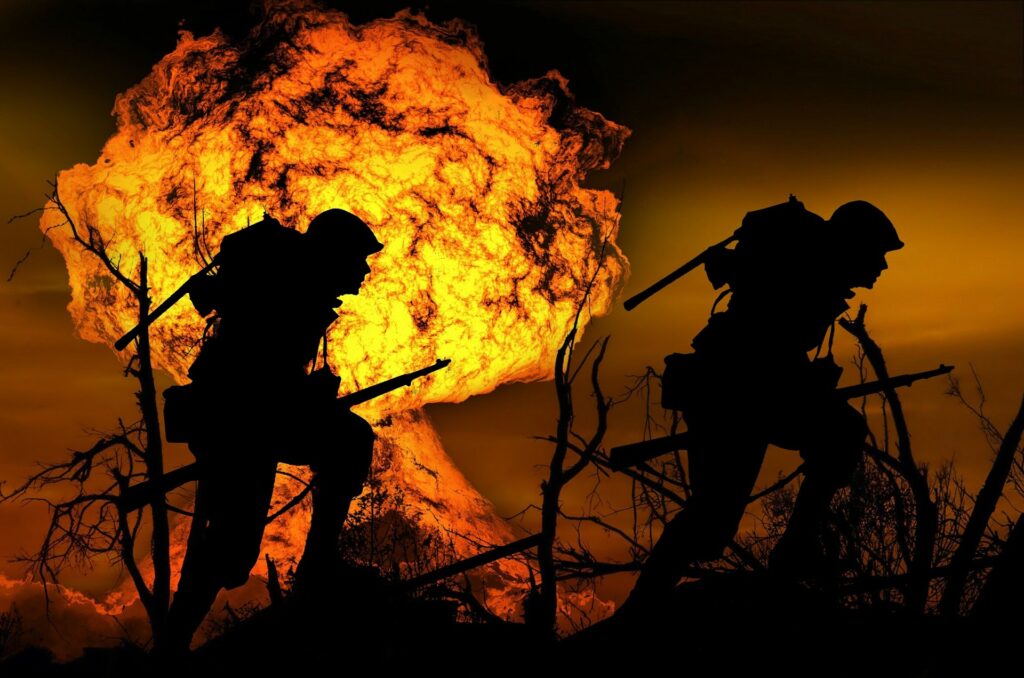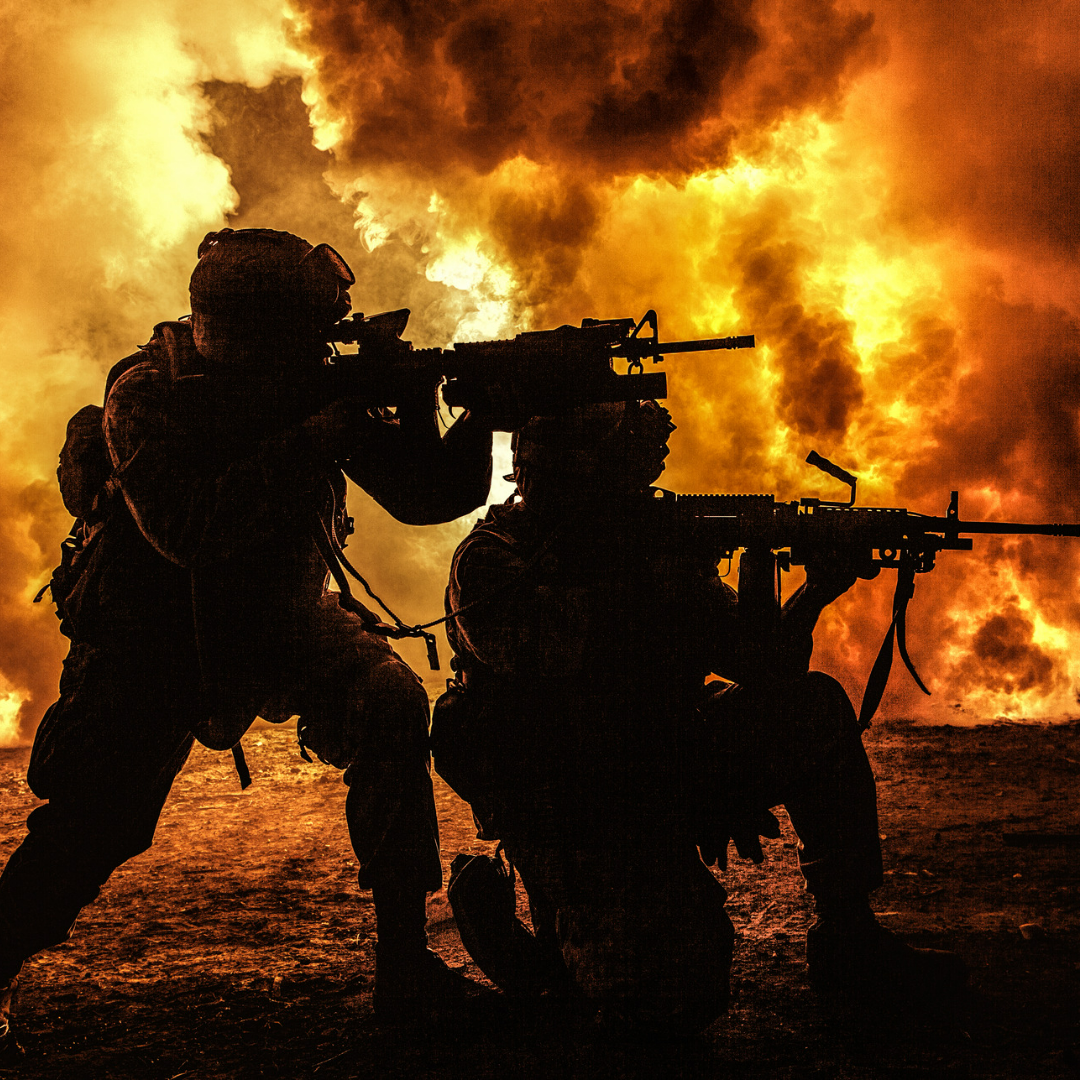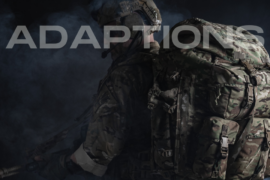Fear (noun): “an unpleasant emotion or thought that you have when you are frightened or worried by something dangerous, painful, or bad that is happening or might happen.”
What happens when we are scared?

The fight-or-flight response begins in the amygdala. The amygdala signals the hypothalamus, which then activates the pituitary gland. The pituitary gland is where the nervous system meets the endocrine, or hormone, system.
Other things that happen:
- The sympathetic nervous system gives the adrenal gland a nudge, encouraging it to produce adrenaline in the bloodstream.
- Circulating cortisol turns fatty acids into energy, ready for the muscles to use, should the need arise.
- This also boosts activity in the heart and lungs.
- Reduced activity in the stomach and intestines, which explains the feeling of “butterflies” in the stomach.
- Inhibited production of tears and salivation, explaining the dry mouth that comes with fright.
- Pupils dilate.
- Tunnel vision
- Reduced hearing.
- Both the hippocampus — a brain region that is heavily involved in memory — and the prefrontal cortex, which aids high-level decision-making, also help control the fear response.
(source: medicalnewstoday )
Why do we need to overcome fear?
- Fear limits your full potential
- You can never fully run away from fear
- Fear is a waste of your energy
- Fear is all in your mind
What is the opposite of fear?

If you can be calm in the face of something that has frightened you, then you have already taken the preliminary steps which have removed your fear. Just because you can be indifferent to something, or suffer through something, does not mean that you are not afraid, but that you bear your fear.
It’s about how you deal with fear
The problem with not analysing fear is that when people become frightened, they will follow anyone who assures them that they can make them safe. People may take advantage of your fear if you are unwilling to question their authority.
“The first thing you’ve got to realise is that most of the fear that you have isn’t reality,” says former Navy SEAL Jocko Willink, who is now an author and leadership coach. “It’s just built up in your head.”
The best way to get over any fear is to face it with confidence, he tells CNBC Make It: “Go and look at it. Go on the attack. Move towards it.” The best way to get over any fear is to face it with confidence, he tells CNBC Make It: “Go and look at it. Go on the attack. Move towards it.”
As tempting as it may be to avoid or suppress fear, that will only exacerbate it, Willink says: “The more you hide from it, the bigger it gets. The scarier it gets. Don’t allow that to happen — instead, confront it, face it and get after it.”
(source: ex-navy-seal-take-this-first-step-to-conquer-your-greatest-fears )
How to conquer fear

- According to former SEAL Platoon Commander James Waters, the key to losing yourself in the moment is to devote as much of your energy as possible to preparation: “We spend 75% of our time preparing for deployment and about 25% on the deployment.” Practising an upcoming mission until they feel naturally confident about it – they don’t lie to themselves about the risks, they simply put themselves in the best position to handle them, which inspires confidence.
- A Stanford University study revealed that people who were trained to make jokes in response to disturbing images dealt with them in a much healthier way than those who weren’t given the chance. Laughing in the face of fear made fear run away in embarrassment.
- Physically, you can fight these symptoms: breathe.
-By inhaling for four seconds and exhaling for four seconds, you are able to calm down the nervous system and regain control of your own biological response to fear. As a result, the actual experience of fear is less powerful.
- According to Colonel David M. Benedek, M.D., talking about a frightening experience—whether through therapy or a game of cards—helps soldiers find meaning in it. It makes sense—communication allows them to process the event and cultivate closer relationships with important people in their lives.
- If you’re scared of something, admitting it to a friend may be the best thing for you—hearing yourself say stuff out loud helps you put it out in the open and confront it head-on. In times of stress, our brains generate self-talk that can dramatically increase our feelings of fear. Soldiers fight back against this by actively reminding themselves to mentally shout over those thoughts. They focus on the positive part of the experience, repeating words like “faster” when they need to go faster. With enough practice, they learn to ignore and even override the monologue in their brains.
- Whatever you’re afraid of, you can’t always opt to avoid it for the rest of your life. To Make sure the fear doesn’t take over when lives are on the line, soldiers simulate the most stressful scenarios they can, trying as much as possible to experience the emotions in practice so they have less of an effect in reality. Science backs this up, too. Instead of thinking happy thoughts and ignoring your fears, the best way to overcome anxiety is to spend a lot of time imagining the worst possible outcome. People who are able to picture their worst fear and stay with that emotional experience instead of pushing it out of their minds generally get over that fear much more effectively than those who try to ignore them.
- ● Meditation is another method that elite soldiers are now using to destress, prepare for combat, and control fear. Programs like Warrior Mind Training, which tailors its meditation practice specifically to the needs of the armed forces, offer new recruits and combat veterans alike the opportunity to benefit from a technique that has been proven to provide tremendous mental health benefits. The job of any elite soldier is to willingly put their life at risk again and again and again. And some find that this is a great way to overcome fear. By enduring an intense emotional experience many times, the anxiety diminishes.
(source: 8 military tested tricks for fear )
Jay Jay’s was founded in 1993 by our team of former Police and Military personnel. We’ve been manufacturing load-bearing equipment and supplying clothing for the military for thirty years. Our innovative, built-for-life products and industry-leading customer service have earned us an outstanding reputation that we’re incredibly proud of.
Why not try for yourself?





